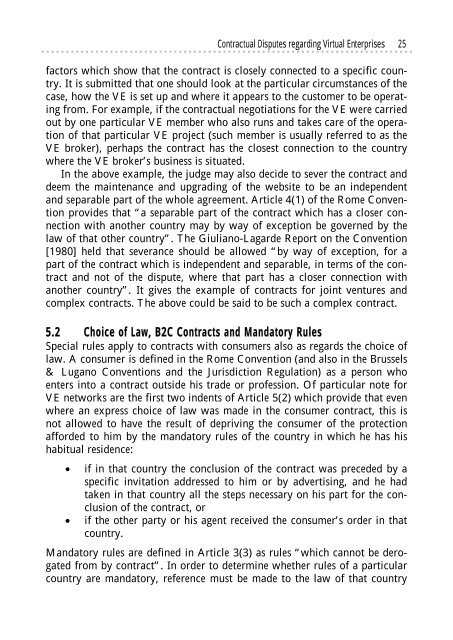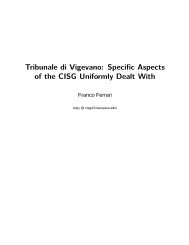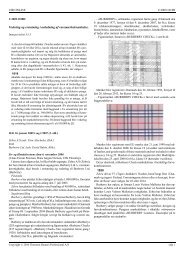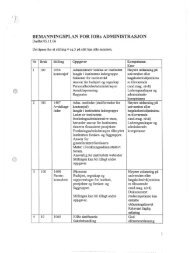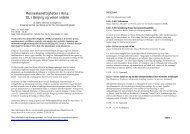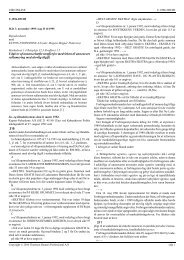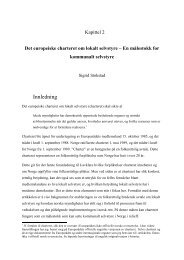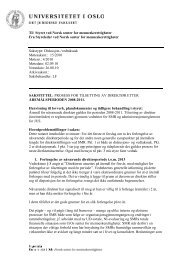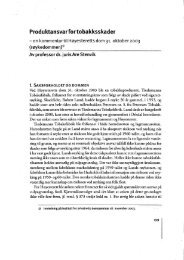Lee A. Bygrave (red.) YULEX 2002 - Universitetet i Oslo
Lee A. Bygrave (red.) YULEX 2002 - Universitetet i Oslo
Lee A. Bygrave (red.) YULEX 2002 - Universitetet i Oslo
Create successful ePaper yourself
Turn your PDF publications into a flip-book with our unique Google optimized e-Paper software.
............................................................................<br />
Contractual Disputes regarding Virtual Enterprises 25<br />
factors which show that the contract is closely connected to a specific country.<br />
It is submitted that one should look at the particular circumstances of the<br />
case, how the VE is set up and where it appears to the customer to be operating<br />
from. For example, if the contractual negotiations for the VE were carried<br />
out by one particular VE member who also runs and takes care of the operation<br />
of that particular VE project (such member is usually refer<strong>red</strong> to as the<br />
VE broker), perhaps the contract has the closest connection to the country<br />
where the VE broker’s business is situated.<br />
In the above example, the judge may also decide to sever the contract and<br />
deem the maintenance and upgrading of the website to be an independent<br />
and separable part of the whole agreement. Article 4(1) of the Rome Convention<br />
provides that “a separable part of the contract which has a closer connection<br />
with another country may by way of exception be governed by the<br />
law of that other country”. The Giuliano-Lagarde Report on the Convention<br />
[1980] held that severance should be allowed “by way of exception, for a<br />
part of the contract which is independent and separable, in terms of the contract<br />
and not of the dispute, where that part has a closer connection with<br />
another country”. It gives the example of contracts for joint ventures and<br />
complex contracts. The above could be said to be such a complex contract.<br />
5.2 Choice of Law, B2C Contracts and Mandatory Rules<br />
Special rules apply to contracts with consumers also as regards the choice of<br />
law. A consumer is defined in the Rome Convention (and also in the Brussels<br />
& Lugano Conventions and the Jurisdiction Regulation) as a person who<br />
enters into a contract outside his trade or profession. Of particular note for<br />
VE networks are the first two indents of Article 5(2) which provide that even<br />
where an express choice of law was made in the consumer contract, this is<br />
not allowed to have the result of depriving the consumer of the protection<br />
afforded to him by the mandatory rules of the country in which he has his<br />
habitual residence:<br />
• if in that country the conclusion of the contract was preceded by a<br />
specific invitation addressed to him or by advertising, and he had<br />
taken in that country all the steps necessary on his part for the conclusion<br />
of the contract, or<br />
• if the other party or his agent received the consumer’s order in that<br />
country.<br />
Mandatory rules are defined in Article 3(3) as rules “which cannot be derogated<br />
from by contract”. In order to determine whether rules of a particular<br />
country are mandatory, reference must be made to the law of that country


